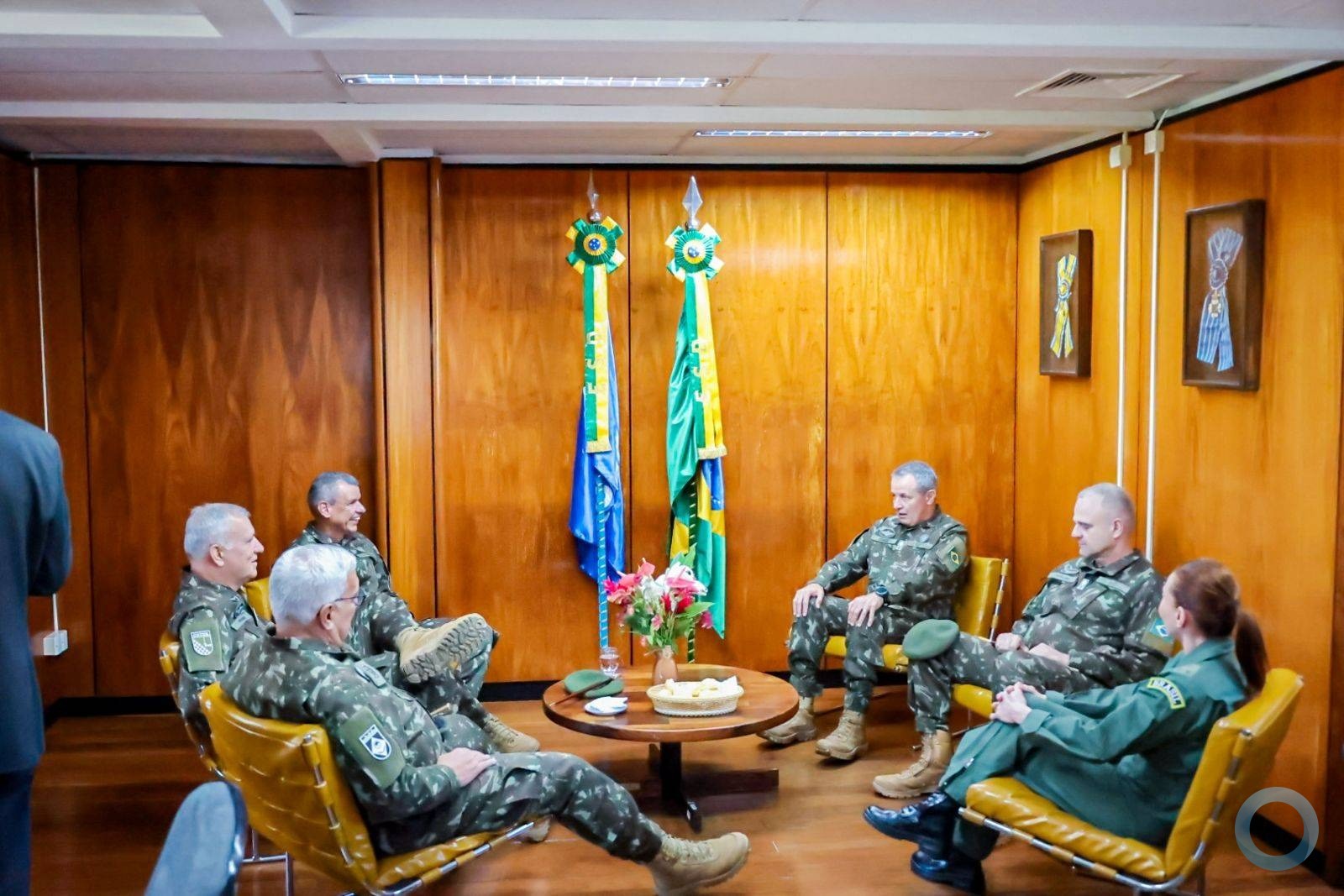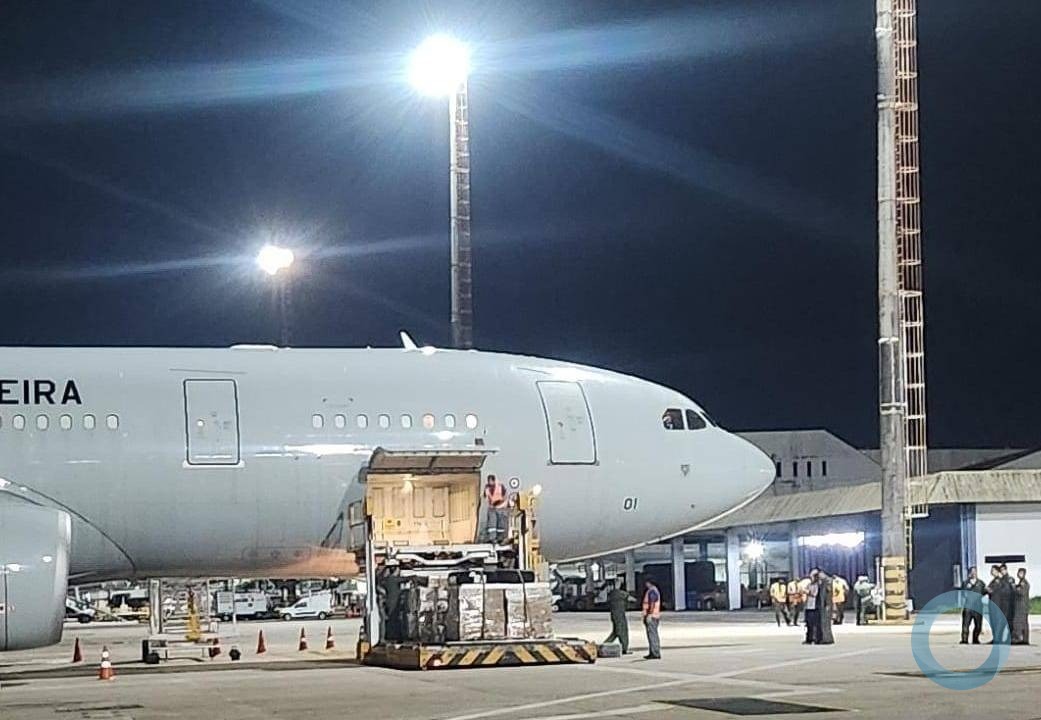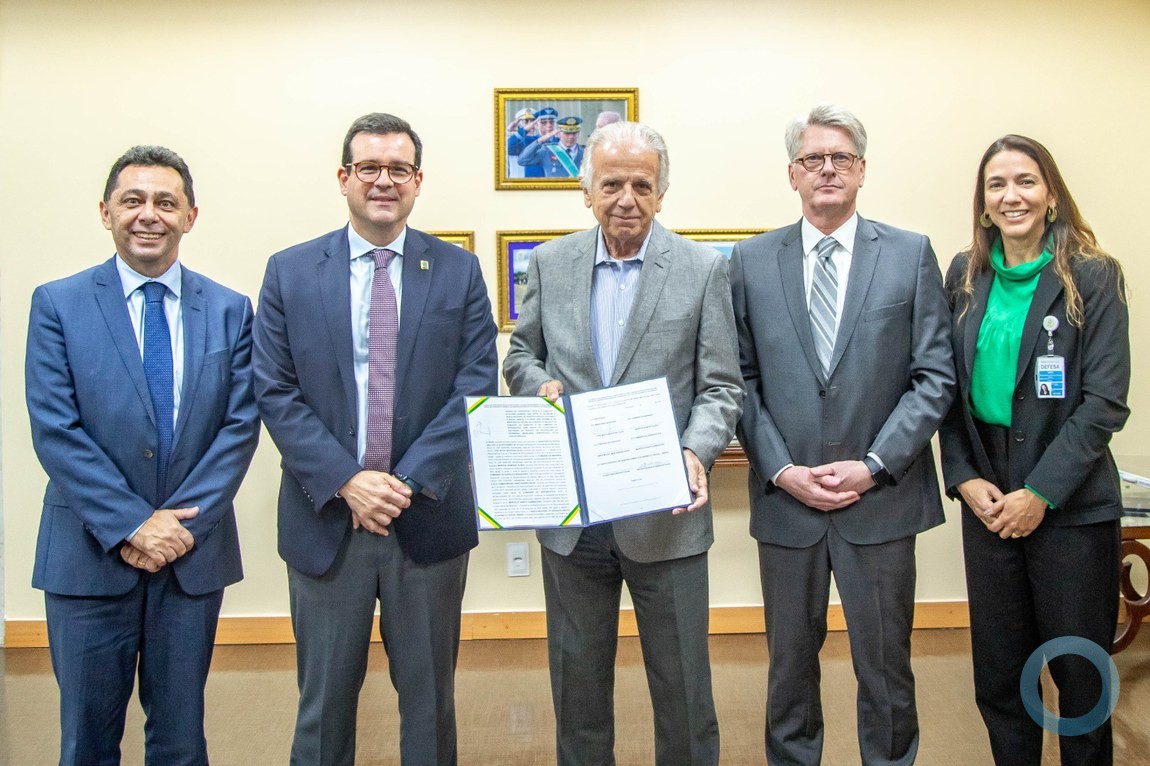Taciana Moury
Since its founding in 1648, the Brazilian Army (EB, in Portuguese) has maintained a partnership with the indigenous peoples of Brazil’s forests and border areas. The First Border Special Platoon (1º PEF, in Portuguese) is one such union.
Based in Tumucumaque Mountains National Park in the states of Amapá and Pará, the unit monitors Brazil’s northwestern border with Suriname with the help of indigenous peoples of Tiriós heritage. The park is a conservation area of nearly 4 million hectares in Brazil’s northern border region.
The 1º PEF headquarters in Pará is mainly accessible via air, since rivers are navigable only during the rainy season from March to July. The closest cities are Macapá, the capital of Amapá, located 594 kilometers away, and Belém, the capital of Pará, located 940 kilometers away. Nearly 2,000 indigenous people from 23 different tribes of Tiriós heritage reside in the area, living off farming, hunting, gathering, and fishing.
The 1º PEF is under the command of the EB 2nd Jungle Infantry Battalion (2º BIS, in Portuguese), known as the Pedro Teixeira Battalion, based in Belém. The unit made up of about 50 service members, includes 12 indigenous soldiers of Tiriós ethnicity who contribute their knowledge of the jungle-essential skills for the unique characteristics of the Amazon region.
According to EB Colonel Eduardo Veiga Cabral, commander of 2º BIS, 1º PEF personnel are relieved every 60 days, while the medical team rotates every 30 days. “Just the 12 indigenous service members stay at the administrative headquarters full-time,” Col. Veiga said. “We keep an infantry platoon reinforced with service members who have essential skills to properly perform general services and manage the administrative needs of the unit—in addition to the medical staff required for basic health care.”
The 1º PEF moved into the area in 2003, but its first reconnaissance expeditions go back to 1985, when the military unit was established. “The objective was to ensure sovereignty in the area bordering Suriname — a neighboring partner nation — through occupation, presence, and monitoring of the region, in addition to providing aid to indigenous communities and cooperating on regional development,” Col. Veiga said.
Life in the jungle


EB First Lieutenant Josué Sobreira de Medeiros, who twice commanded the 1º PEF, described to Diálogo the main activities performed in the area. “Ground, air, and river patrols and reconnaissance missions take place as well as perimeter defense, maintenance, and preparation of facilities and equipment, and aid to local indigenous people through civic-social actions. We also provide training to ready troops for jungle operations,” 1st Lt. Medeiros explained.
He noted the importance of the logistics infrastructure put in place to supply personnel needs during the 60 continuous days they remain at the administrative headquarters in Tumucumaque Mountains National Park.
“Logistics support is provided by an aircraft of the Brazilian Air Force that facilitates team rotation and provision of emergency supplies, food, materials, and machinery,” 1st Lt. Medeiros said. For 1st Lt. Medeiros, the integration of indigenous peoples as soldiers into EB is very important to facilitate contact with the indigenous communities in the region. “They share the customs of the locals and speak their dialect,” he explained, adding that the relationship of 1º PEF personnel with the indigenous community is peaceful and based on mutual support.
Adapting to military life


When EB Private Elton Kunumiwa Kaxuyana Tyrió joined the military, he gained more responsibilities. “In the tribe, there are no deadlines and no daily work. But being in the military is different,” Pvt. Elton told Diálogo. Pvt. Elton, who serves as a rifleman, performed other duties since joining the service.
“I was an interpreter during military personnel visits to the Tirió tribe’s villages, and I served as a regional guide and also piloted 1º PEF vessels,” he said. According to Pvt. Elton, being part of EB is important to protect the land and provide assistance to the people of his village. “It’s good for the tribe to have service members, because we help our families with our salaries and we're an example for the youth.
Also, we learn to train and behave differently from the rest of the tribe. Our superiors like that, because we become better prepared to defend our village,” Pvt. Elton said. “Our indigenous soldiers are dynamic and distinguish themselves in various activities,” Col. Veiga said, adding that indigenous soldiers receive the same training than other soldiers. “First, they go through a period of individual basic training, then, they qualify as soldiers to carry out the operational and logistical duties of a military unit,” he said.
According to Col. Veiga, indigenous troops quickly adapted and the 12 soldiers in the platoon are perfectly integrated into the military routine. “They come from an indigenous culture that already has hierarchies, which facilitates the process,” he said.
The selection process for indigenous population to enter the military, Col Veiga explained, follows that of all enlisted men 18 years old or older. “For the recruitment, a Selection Committee from the 8th Regional Military Command travels to 1º PEF and selects indigenous citizens who meet the requirements for voluntary military service,” he said. After their initial military service, indigenous personnel can remain on active reserve for a period of up to seven years.


(Photos: Agência Verde-Oliva / Brazilian Army)

































